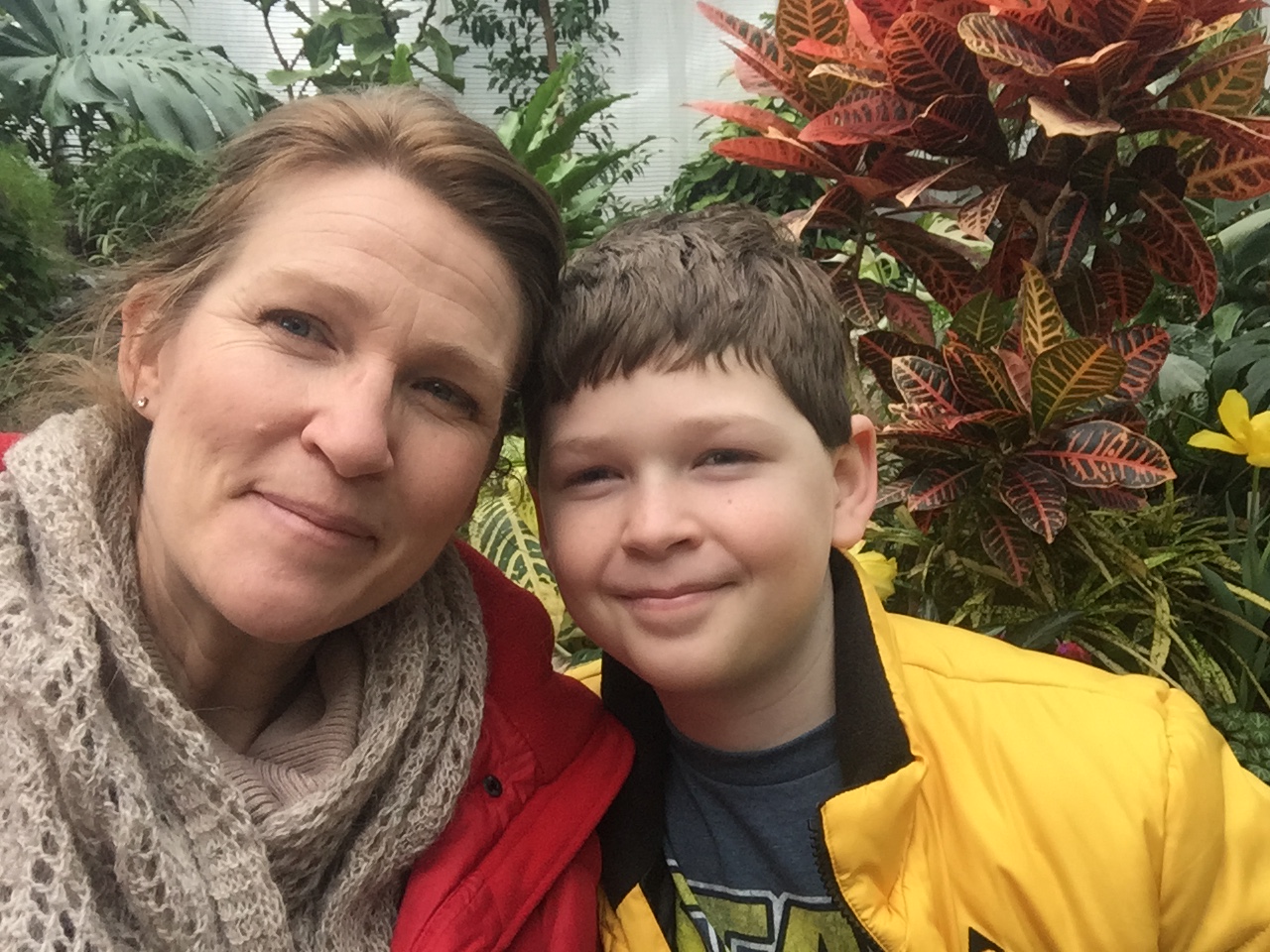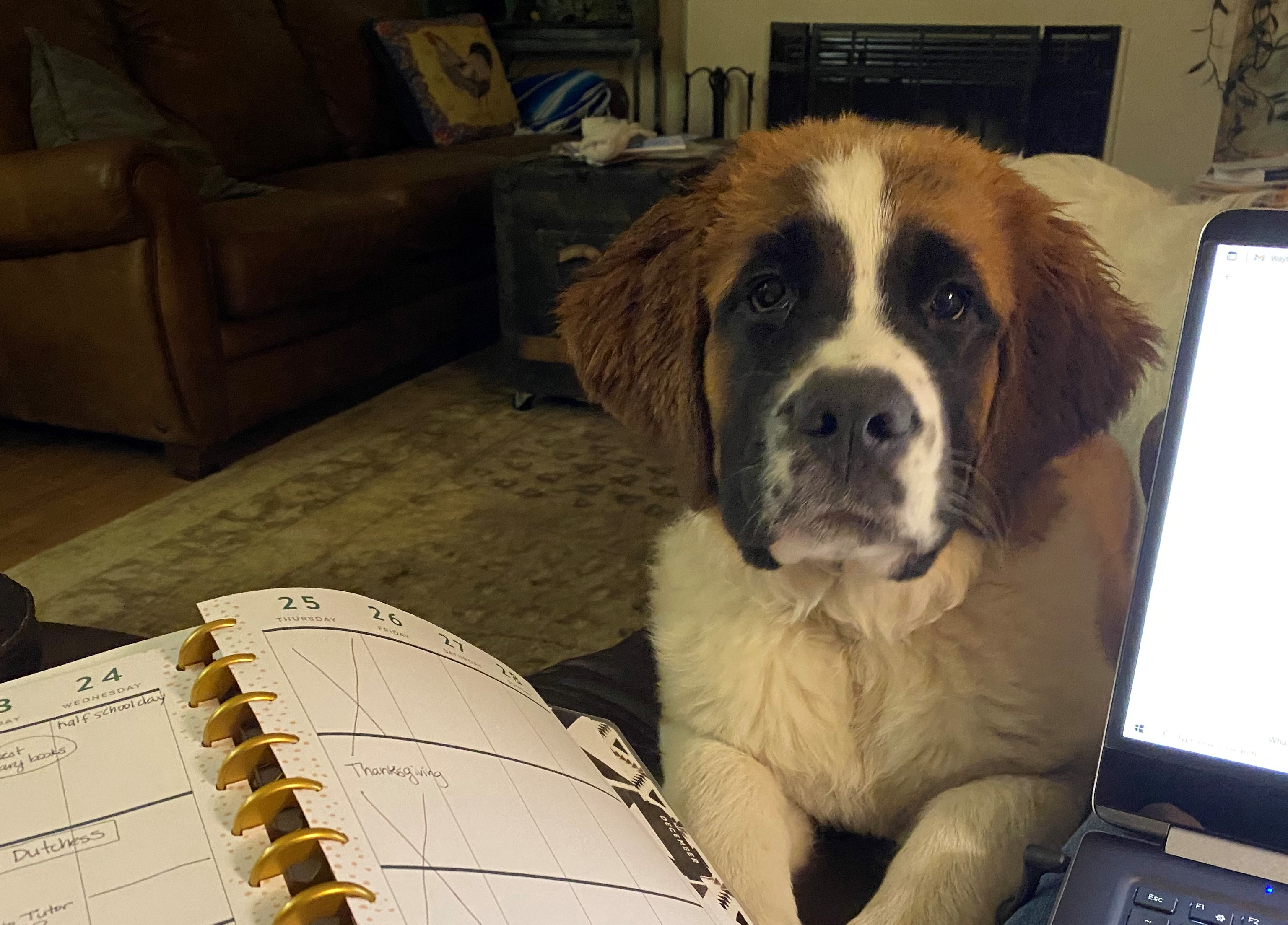Worldview What?
This post in because I really owe a better explanation to a newer-to-homeschoool mom that I was speaking with the other day. We were discussing her school plans and, a little fired up from my earlier conversation with a seasoned homeschool mom, I dropped “Biblical worldview” into the conversation with the same no-holds-barred approach that my husband drowns his chicken wings with Frank’s Red Hot. Toward the end of our time together, this sweet, young mom confessed that she wasn’t really sure what I meant by Biblical worldview. I felt terrible. I should never have been so rude to use jargon without explaining. Dear, sweet-newer-to-homeschool friend – please forgive me. I will endeavor to explain more completely.
First, everyone has a worldview. Its the lens through which we view the world. Webster’s Online dictionary defines worldview as “a comprehensive conception or apprehension of the world especially from a specific standpoint” These worldviews, whether we realize it or not, are the foundation for how we make decisions.
When I was younger my worldview was on auto-pilot. Like the hodge-podge of furniture in my first apartment, my worldview was a mix-mash of stuff I’d inherited from my parents and people around me. I made decisions in a very secular, very practical manner. Pragmatism was the rule for balancing all the factors and outcomes of any decision. I’d sometimes look to popular ideas in culture to guide me because I definitely wasn’t a rugged individualist willing to take heat from my friends. I was somewhat informed by my dad’s individualist tenancies, having grown up the daughter of an entrepreneur. Finally, I held moral ideas based in Judeo-Christian traditions and the heart of service displayed by my Mom. Reflecting back, I think I operated with a worldview informed by secularism, pragmatism, individualism and tradition.
When I think of other peoples worldview, I realize they often operate on autopilot, like I did. Before the mid 2000’s I’d ever heard the term worldview used in any manner that meant anything to me despite having earned a diploma from a respected liberal arts college. It wasn’t until after having children and getting part way through our elementary homeschool years that I realized worldview was important. I ran up against it for the first time when teaching my kids about how the earth came into existence and realized our science book said something completely different than the Bible said.
I’d taught the kids the Bible was 100% true, all the time. Skreeeeetch <insert the sound of car tires skidding on pavement>
I realized I had to make some choices when it came to teaching my kids. Did the world evolve or bang out of the primordial ooze or did God make the world in 6 days? No pressure, teacher/principal/mom.
Fast forward to today and the term worldview a growing topic of conversation. Last year, worldview dominated the news whether the term was dropped or not. Across the globe, factions of people with completely differing worldviews conflicted and set out to be heard. Understanding another person or group’s worldview can help inform our response and help us understand one another. Understanding our own worldview is quite important for parents who wish to educate our children at home.
I’d argue that most of our local schools operate from a secular (non-religious) worldview since the constitution of the United States bars a state-religion. I couldn’t say from personal experience but I suspect that schools in a country such as Iran, a country with government and religion intertwined, teach from an Islamic worldview. Prayerfully, the world will never forget the outcome of a worldview founded in race as the Nazi regime taught in German schools. What we learn and teach in school about worldview is important.
Since running up on the elementary science books that coincided with my liberal arts science education but completely and totally disagreed with my handy-dandy Bible, I had to spend time thinking about my worldview. I couldn’t teach my kids that both were correct. God had impressed upon my heart that I couldn’t teach my kids that the Bible wasn’t true. My faith had grown to understand the Bible was without-error and God breathed. I realized, as the mom, the teacher, the principal and the day -to-day leader of this band of little people, I needed to pick a side. I picked God and from that has grown a Biblical worldview.
In late elementary school, we accidentally got a science book we’d inherited from a garage or used-book sale. The book (I think it was a Bob Jones publication) put forth that tectonic plates were theoretical and went into a long explanation of scientific theory versus scientific fact. This book also explained creation as compared to evolution theory. I appreciated that it taught us, the kids and I all, to question science. While I hold a BS in science, I really don’t remember every hearing that tectonics was theoretical before this time and I remain a little miffed about that. What else did I learn was settled science that was, in fact, yet to be really understood? Through the years we went on to become avid users of science curriculum informed by a Biblical worldview because that seems that area of most glaring contrast to secular or mainstream texts.
Today, I strongly believe that training our kids in a Biblical worldview is what God expects of us. Does it mean that we don’t explain the other views to our children? I’d say not unless we wish them to be ignorant! What does that mean in practical application, though? It means going back to the Bible in all topics to inform our perspectives. For example, I taught language arts in my homeschool and had an opportunity now and again to discuss how God had gifted us language. Babel, anyone? Mastering language to use for His kingdom – whether it’s to evangelize or simply settle a dispute over the last pencil with intact eraser at the learning table – is important to God. I would think about numbers and how rigidly God designed those to work in arithmetic yet how these same numbers can be finessed through statistics. Math is nothing short of miraculous but it points, if we chose to look, at the wonder of God and his know-ability yet infinite incomprehensibility. This last year my family has spent time understanding how a Biblical worldview could and should inform our social and political ideas. What does the Bible say about government, justice, race, obeying leaders for example? We probably need to teach our children about these ideas so we probably need to master them ourselves.
When my kids were young and I was quite new to homeschooling and also new to the idea that I’d live out my faith every day, I really needed those books with a Biblical worldview to guide me. Learning to see the world as God’s perfect creation instead of how I’d been taught, as a purposeless result of an accidental explosion, was a journey I did alongside my kids. By high school, we still learned the same things I learned as a high schooler but from a perspective that God created everything, was in control and our ultimate purpose was to serve Him. Today I’m always asking my kids what they think about a topic and hoping their ideas are informed by wisdom and fear of the Lord.
If you are curious about Biblical worldview curriculum, there are plenty of resources available these days. I’ve been fortunate to have found many for my homeschool through used book sales and as hand-me downs from other families. Sometimes, I’ve purchased them new from great online resources, too. As a part of this ministry, I have already begun mailing used books and curriculum to families who could use a hand up and they have blessed their recipients. These books are shipped as a gift to families in need. They are age appropriate resources and point back to scripture with a Biblical worldview.
If you have some books or curricula with a Biblical worldview you’d like to donate or if you wish to help with the cost of shipping, please email me. I’d love to talk with you about how you can help. If you could use a little encouragement or are in need of curriculum or books, please email me with that, too. I look forward to how God will work! You can reach me at jesushomeschools@gmail.com.









